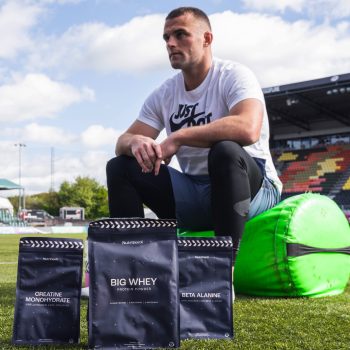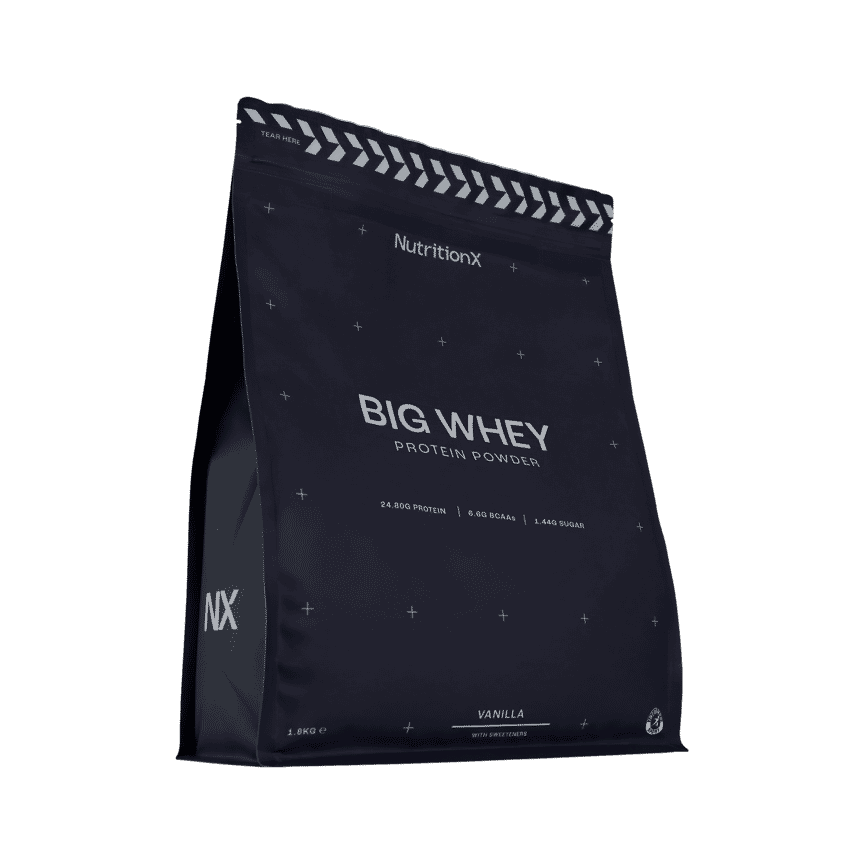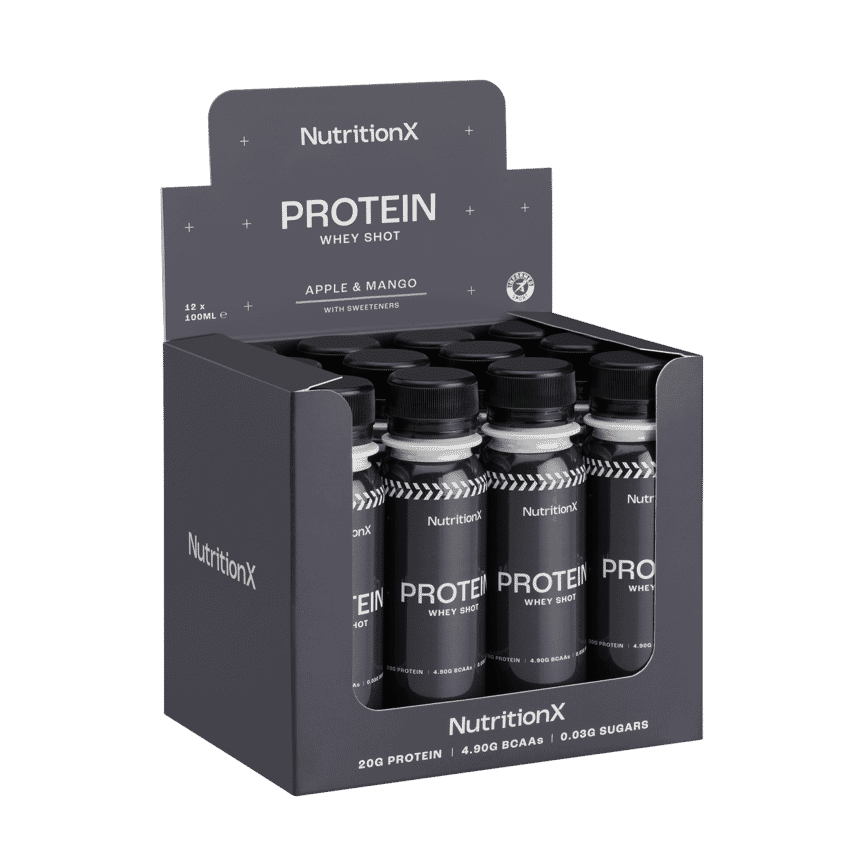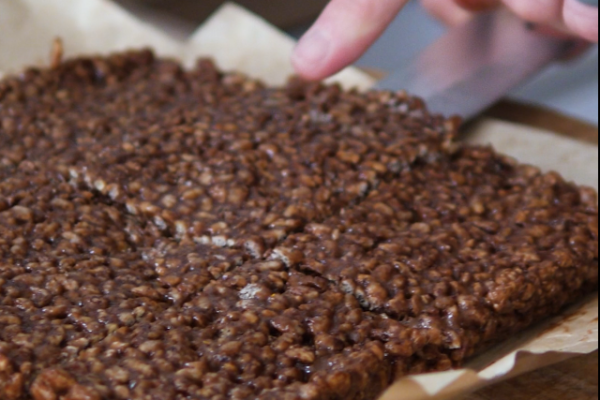For footballers and rugby players, nutrition and supplements at the start are crucial to handling intense fixtures, physical stress, and maintaining top performance. Discover the best supplements to help boost performance. The choices you make in August can shape your form through to May. Here, our team of experts looks at how nutrition can help players cope with one of the most physically demanding phases of the year, facing competitive matches, congested fixtures and physical stress that can make or break performance.
What challenges does the start of the new season present for athletes?

The opening weeks of the football and rugby seasons present a unique stress point for athletes. Physical workloads increase as match intensity returns to peak levels, training schedules become more tactical and the body is exposed to greater cumulative fatigue. For rugby players, the contact nature of the sport introduces high mechanical stress, whereas for footballers, explosive sprinting and high-speed movements dominate.
One of the biggest risks during this phase is injury. Research suggests that injury rates peak in the early weeks of the season, often due to higher match intensity, greater aggression and increased willingness of players to take more risks during matches when compared to pre-season training (Eliakim et al., 2020). Muscle soreness, fatigue and decreased recovery capacity can also impair performance and slow adaptation.
How does nutrition change from pre-season to the start of the season?
Pre-season is typically focused on high training loads, strength gains and conditioning. Nutrition during this time often emphasises energy surplus and recovery support to fuel multiple daily training sessions.
When the competitive season begins, the focus shifts to match-day performance, acute recovery, injury prevention and maintaining overall health throughout the season. Total energy needs may decrease slightly due to fewer training sessions, but the intensity and impact of matches mean nutrient timing and quality become more important than ever.
Meal planning should centre around match fixtures, with increased carbohydrate intake in the 24 hours pre-match, and strategic protein and carbohydrate combinations post-match to support recovery.
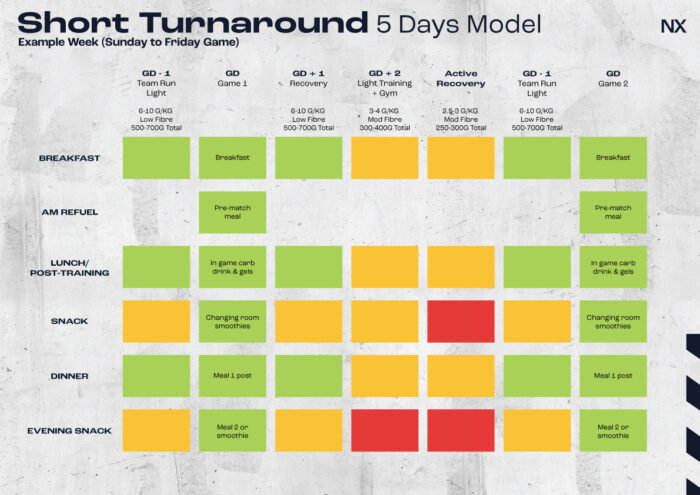
What should athletes be thinking about when it comes to nutrition?
Fuel, repair and readiness should form the foundation of any athlete’s nutrition plan at the start of the new season.
Energy availability is vital, as increased match play demands higher carbohydrate intake to fuel both performance and recovery. Inadequate energy availability not only reduces endurance and strength, but can also impair immune function and increase injury risk (Mountjoy et al., 2018). To ensure dehydration doesn’t impact physical or cognitive performance on the pitch, tailored hydration strategies are also highly recommended; especially during warmer August fixtures.
With muscle damage inevitable during matches, adequate protein intake is also important to support proper muscle repair and adaptation.
Is recovery important at the start of the new season?
Absolutely; arguably more so than during any other phase of the year. Without sufficient recovery, players risk underperformance, overtraining or injury. Recovery isn’t just about sleep and rest, it’s about restoring muscle glycogen, repairing damaged tissues and rebalancing fluid and electrolyte losses.

Studies show that muscle protein synthesis peaks when high-quality protein is consumed immediately post-exercise, ideally in combination with carbohydrate. Carbohydrates will contribute to suppressing post-exercise muscle protein catabolism and glycogen replenishment, as well as the daily positive energy balance needed to support muscle growth (Moore et al., 2019). Strategic supplementation can play a key role in meeting these needs quickly and effectively, especially when players need to recover and prepare within short turnaround periods.
Which sports supplements should athletes take at the start of the new football/ rugby season?
Three supplements stand out for their evidence-backed benefits at this point in the calendar for athletes: protein, creatine and beta alanine. Each offers specific support for football and rugby players facing intense physical demands. As ever, these supplements should work alongside a solid nutrition strategy, specifically developed to meet the energy and recovery needs of players at the start of the new season.
Why is protein important?
Protein is essential for muscle repair, adaptation and immune function. During matches and heavy training, muscle fibres undergo microtrauma. Protein, particularly rich in leucine, stimulates muscle protein synthesis and helps to rebuild and strengthen muscle.
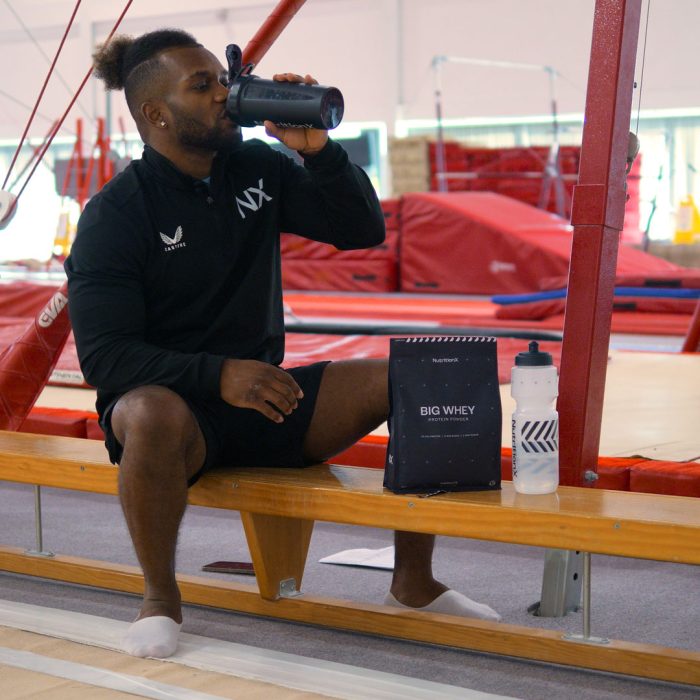
It’s generally recommended that athletes consume 1.2–2.0 g of protein per kg of body weight, spread evenly across meals and snacks (Abreu R, Figueiredo P, Beckert P, et al.., 2021). Supplementing with a high-quality whey protein like Big Whey or Protein Shot can make hitting these targets easier, especially post-match. Taking a casein protein as a pre-bed snack after evening games, like Nighttime Protein, can also be helpful as appetite might be suppressed.
Why should athletes take creatine?
Creatine monohydrate remains one of the most researched and effective supplements for strength and power athletes. It works by increasing phosphocreatine stores in muscles, enabling faster regeneration of ATP: energy used during high-intensity actions like sprinting, tackling and jumping.
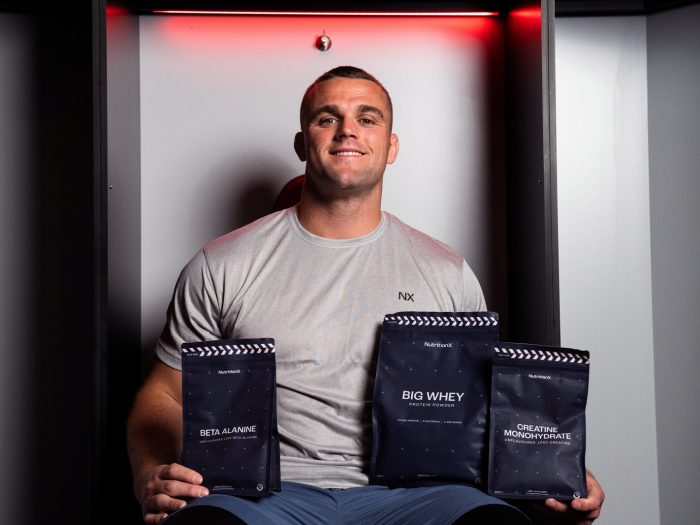
In both football and rugby, where repeated bouts of explosive effort are key, creatine can enhance power output, improve training capacity and support muscle mass maintenance. On match-day, as part of a recovery strategy, creatine supplementation can also boost muscle glycogen replenishment (Abreu R, Figueiredo P, Beckert P, et al.2021). A standard maintenance dose is 3–5 g per day.
Why is beta alanine important?
Beta alanine helps you perform better during intense exercise by increasing levels of carnosine in your muscles, which reduces the build-up of fatigue-causing acids. This is particularly beneficial during prolonged or repeated bouts of high-intensity effort, common in both rugby and football.
Research shows that supplementing with 4–6 g per day for at least 4 weeks, divided into smaller doses of 2g to avoid gastrointestinal discomfort and a tingling sensation, can enhance high-intensity performance and reduce perceived fatigue during competition (Collins et al., 2021). Beta-alanine may be especially useful for players who need to sustain high work-rates with repeated sprints, changes of direction and explosive movements across full 80 or 90-minute games; vital at the start of a busy new season.
Should athletes take collagen?
Increasing research suggests that collagen supplementation may offer benefits for athletes, particularly in supporting joint, tendon and ligament health; particularly important when these are put under strain by heavy match and training schedules. Collagen is a key structural protein in connective tissues, and studies have shown that supplementing with hydrolysed collagen, especially when taken alongside vitamin C, can stimulate collagen synthesis and improve tendon function and joint pain. One notable study by Shaw et al. (2017) found that consuming collagen 1h before exercise enhanced collagen production and may help with tissue repair and recovery. For athletes dealing with high-impact training or managing previous joint issues, collagen could be a useful addition to their prevention strategy, helping to maintain long-term movement quality and reduce injury risk.
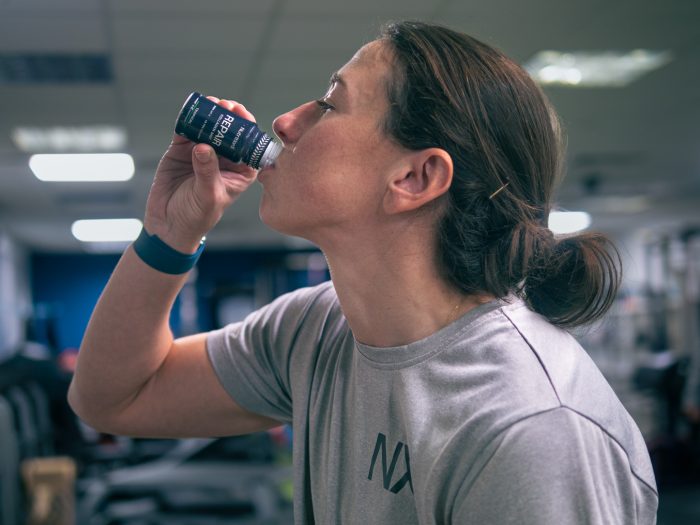
In all, the start of the new season is a critical window for laying the foundations of performance for football and rugby players. Smart nutrition and targeted supplementation can help athletes recover faster, train harder and perform better. Focusing on protein for repair, creatine for explosive performance and beta alanine for high-intensity exercise capacity can provide a reliable edge; especially when competition heats up and margins for success get slimmer.
Check out our range of sports supplements specifically targeted to the needs of football and rugby players here.



